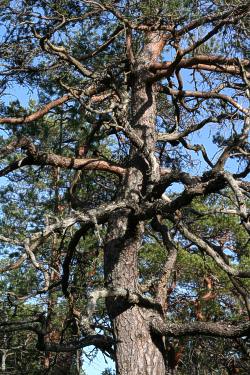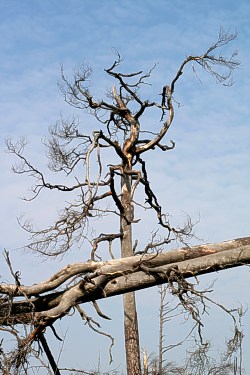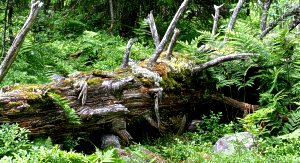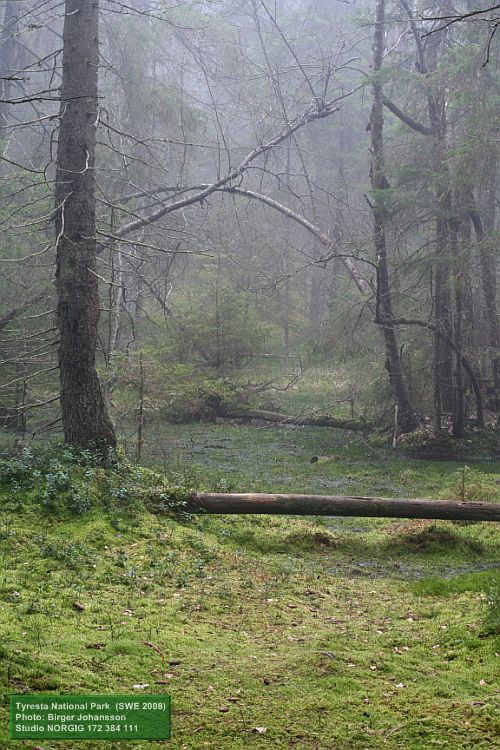
|

| Updated 26 Mar 2009 |
 Most people have never been in a wild wood: a natural forest where the trees have been let do live and die by themselves for a long time. Here, you will meet such forests.
We hope you will be encouraged to visit some of them in real life also.
Most people have never been in a wild wood: a natural forest where the trees have been let do live and die by themselves for a long time. Here, you will meet such forests.
We hope you will be encouraged to visit some of them in real life also.
Few northern nature forests can be called virgin. Through the history, humans have used forests for various reasons, mostly dramatically shaping them – often destroying them.
Most likely, a virgin-looking (European) forest has been more or less affected by humans in the past.
Actually, a wild appearance can develop within less than a century – if the trees are left undisturbed.
A forest is a changing system. In general, the northern forests have developed after the Ice Age
and thus can be considered relatively young.
Even today, the land elevation produces new land. Within a couple of centuries, much of it will probably be forested.
Today, logging is the main forest forming factor. In the past virgin forests, fire was. Forest fires supported some tree species and repressed others.
Usually, wild woods are located far away from populated areas. But here and there we can find small urban reserves with wild trees.
Visiting these easy-to-reach places can help us discover the richness of the wilderness.
A wild wood is like a great theatre. The dead stems add to the artistic scenery. The living trees are the solid actors in the play. The wildlife form the choir and create the action.
Picture stories
Mar 09: Bräntings Heath (Bräntings haid)
Dec 08: The Oldest Nordic Spruce Tree (Det äldsta svenska granträdet)
Dec 08: Halle-Vagnaren and its Wind-pruned Pines (... och dess martallar)
Oct 08: Molla and Mollungen Beech Woods (Bokskogarna vid Molla)
Sep 08: Högklint – Trees on the Rocks (Högklint – Träd på klipporna)
Aug 08: Färnebofjärden National Park (Färnebofjärdens nationalpark)
May 08: Tyresta National Park (Tyresta nationalpark)
|
© UP Creative Support (2008) |
